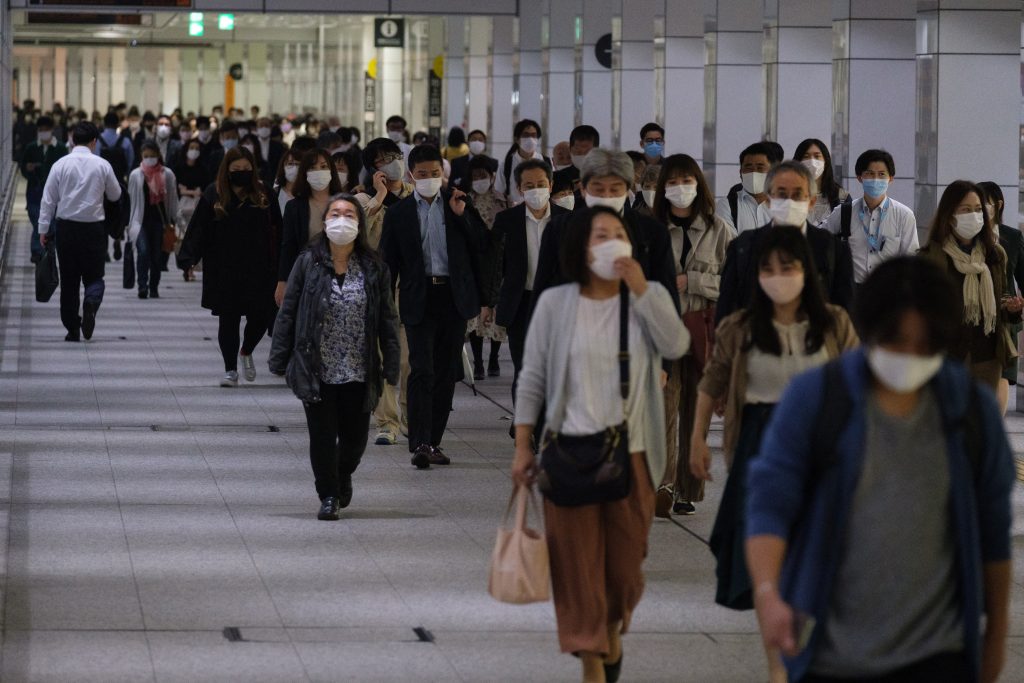
- ARAB NEWS
- 05 Jul 2025

Nader Sammouri
OSAKA: After almost a year and a half of the not-so-novel-anymore COVID-19 crisis, people from all over the world have gathered their own exceptional stories to tell. The world as a whole was focused and connected by this one major incident.
However, something striking ascended, COVID-Sensei.
Sensei (先生) is an honorific term shared in Japan, which means the person who came before, referring to a senior mentor who is addressed as a person of authority.
Many people may associate COVID with a biological curse that poses an infuriating burden on humanity. COVID-sensei is thus an introduction of the positive outlook of the pandemic, as a mentor, a sensei, instead of a curse. It is a way to control the situation, with the mind, rather than be controlled by it, hoping it would outcome a healthy vantage point for the seemingly unfair incidences that occur.
A Tokyo laborer, Yoshihito Sawada, spoke to Arab News Japan about the struggles he had faced amid the pandemic. He explained he was in high demand before COVID-19, but things changed.
“My situation was completely altered by the spread of the coronavirus. I stopped receiving job requests for about two months. I sank in debt and, along with it, in despair and couldn’t pay rent or other elementary expenses,” Sawada said.
But he didn’t fail to grasp the teachings of what COVID-Sensei made him aware of, the blessings of banal things.
“I now realize that work is not a matter of course, but a great blessing. Luckily I was hired after a few months by a kind business owner who saw through my sorrow,” Sawada said.
He added that Japanese people were able to respond appropriately to the pandemic crisis, thanks to their “team spirit and group consciousness.”
The Japanese team spirit infiltrates into its corporate culture, with Japanese workers devoting a huge chunk of their loyalty and investing their time, energy and their own beliefs into their company.
“COVID-19 exposed the benefits of the information revolution, which enabled us to manage the situation far more than if we had to face it with a lagging technology. Human progress allowed a huge amount of information-sharing and an ability to work remotely and earn an income during the crisis. The crisis proved the enormity of the IT revolution,” Sawada said.
Nevertheless, the information revolution could not recover an event eager to materialize, the postponed summer Olympics, to be held on July 23.
Japan’s tourism industry was hit at probably the worst time ever, during anticipation of an abundance of tourists expected to flow into the country to experience the Games. Unfortunately, travel was beaten by ongoing waves of infections.
Minoura Yuri, a freelance tour guide who operates “Tabinomushi“, runs a business that is keen on discovery and experience. Tabinomushi means trip worm, which speaks for itself.
Yuri shares her COVID experience with Arab News Japan saying:
“My business was entirely affected by nature, as inbound tourism became impossible. Unfortunately, my explorations used to lean on being outdoors with other people, directing specific paths and supplementing a sense of humor for eager vacationers. But Tabinomushi targeted expatriates in Japan as well and is continuing to do so.”
Yuri explained that COVID-19 helped younger generations in the corporate world take on new ways to prove themselves and ask for what they believe they should earn.
“The novel rebelliousness in facing the old-fashioned office system was encouraged by COVID-19, which led me to personally think that this might be the collapse of the Japanese job-hunting system,” she added.
The Japanese job-hunting system or “Shukatsu” is a unique job-finding approach in Japan, which occurs in a particular season during the third or fourth year of university student’s education, and is dedicated to secure a place at a company after graduation.
COVID-Sensei, opposed to the plain COVID virus, is a positive way to view the crisis as a teacher, a sensei, and a force of forward change rather than a backward curse.